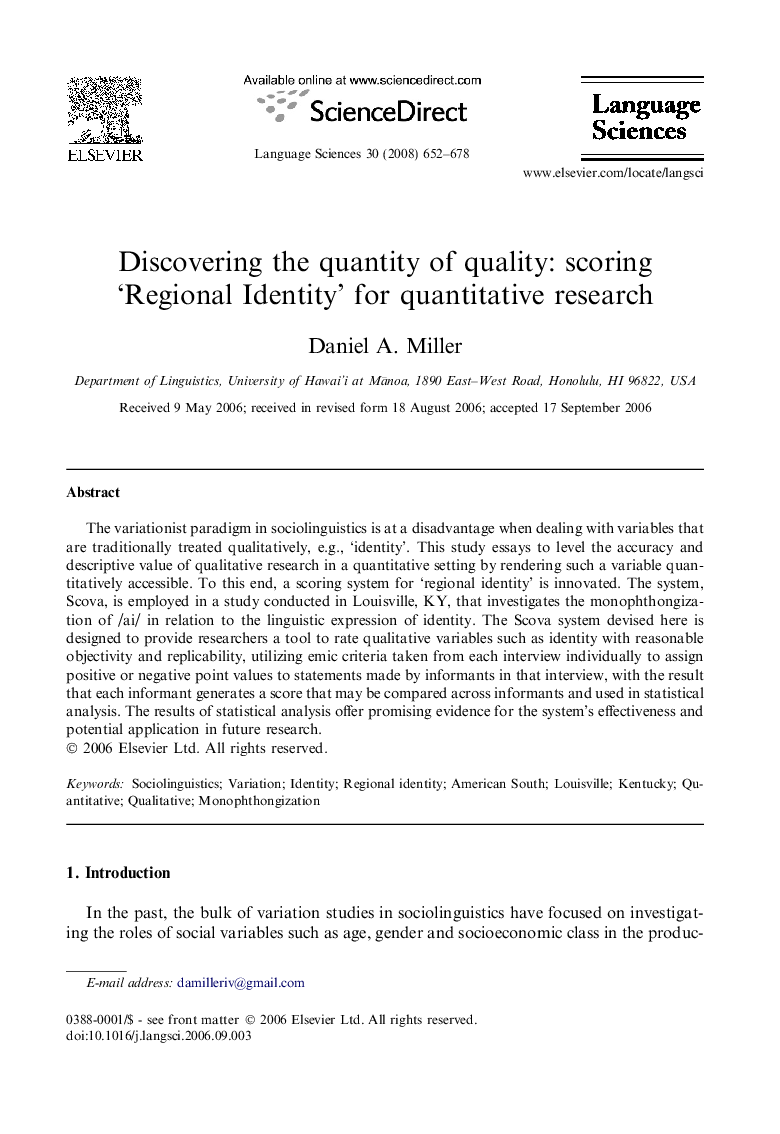| Article ID | Journal | Published Year | Pages | File Type |
|---|---|---|---|---|
| 1103624 | Language Sciences | 2008 | 27 Pages |
The variationist paradigm in sociolinguistics is at a disadvantage when dealing with variables that are traditionally treated qualitatively, e.g., ‘identity’. This study essays to level the accuracy and descriptive value of qualitative research in a quantitative setting by rendering such a variable quantitatively accessible. To this end, a scoring system for ‘regional identity’ is innovated. The system, Scova, is employed in a study conducted in Louisville, KY, that investigates the monophthongization of /ai/ in relation to the linguistic expression of identity. The Scova system devised here is designed to provide researchers a tool to rate qualitative variables such as identity with reasonable objectivity and replicability, utilizing emic criteria taken from each interview individually to assign positive or negative point values to statements made by informants in that interview, with the result that each informant generates a score that may be compared across informants and used in statistical analysis. The results of statistical analysis offer promising evidence for the system’s effectiveness and potential application in future research.
